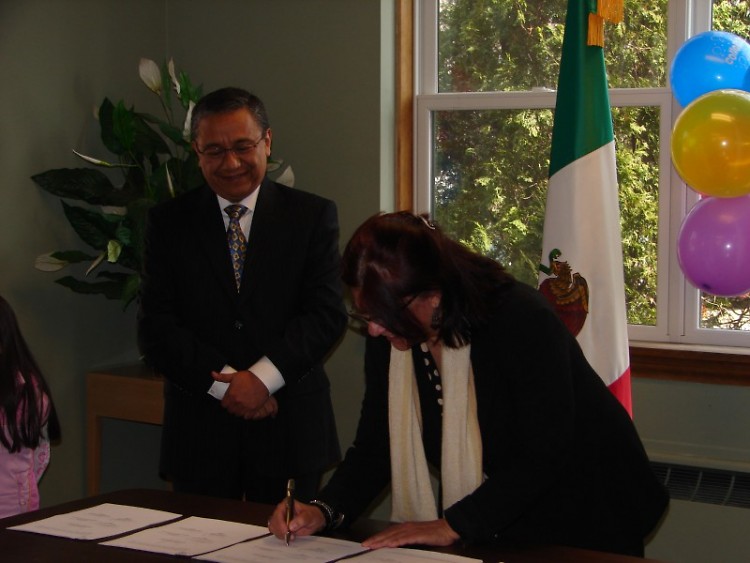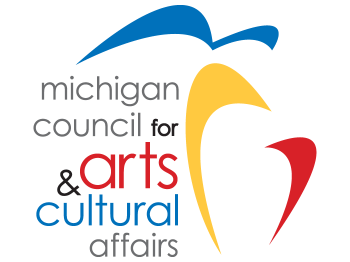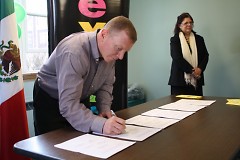*Leer este artículo en español | Read this article in Spanish
"Educar es amar ("To educate is to love")," announced Zulema Moret at the ribbon cutting ceremony for Plaza Comunitaria on Friday, April 1.
Plaza Comunitaria is a Spanish language adult tutoring program at Steepletown Neighborhood Services (671 Davis NW). The volunteer powered program, funded by the Mexican government, is only the second program of its kind in Michigan and exists all over the United States and in Mexico. Upon graduation, students receive a high school diploma from the Instituto Nacional para la Educación de Adultos de México (National Institute for Adult Education in Mexico—INEA). The diploma is valid in Latin American countries other than Mexico as well.
The grand opening of Plaza Comunitaria was a celebration to say the least. After the ribbon cutting ceremony and speeches by co-chair Moret and a representative from the Mexican Consulate, Sr. Vicente Sanchez, attendees feasted on shrimp, queso de freir (fried cheese) and champagne. The event attracted community leaders—artists, service providers, educators, tutors, pastors—who work with people who could benefit from the program.
Moret expressed that if students choose to move back to their home countries after graduating from Plaza Comunitaria, they will be equipped to work at professional jobs whereas they might not have the same opportunities otherwise.
"If they have to return to their countries, we want dignity for them," Moret said.
Currently, 35 students are enrolled in the program. Eight volunteer tutors from the Pailalen Program, Chemical Bank, St. Mary's Church and Grand Valley State University work with students in groups of up to four.
The program offers basic literacy in Spanish, 12 modules for earning a primary certificate and 12 modules for earning a high school diploma. At the moment, sessions are focused on literacy (reading and writing in Spanish), mathematics, science and language. All pedagogical materials including online training modules are provided by INEA and Consejo Nacional para la Vida y el Trabajo (National Council for Life and Work—El CONEVYT).
Plaza Comunitaria will be beneficial not only for immigrants who are thinking about moving back to their home countries but also for those who would like to improve their literacy in Spanish as a foundation for learning English. Moret, a professor of Spanish at GVSU, explained that learning the basics of education in a first language is essential to contextualize concepts when learning a second language. According to the program organizers, it will help participants who are parents build a strong educational foundation for helping their children succeed in school.
"The program is focused on making parents professionals to influence the future," said Sanchez at the ribbon cutting ceremony. "They need to teach their children."
Plaza Comunitaria's tagline, "Educar adultos es sembrar esperanza" ("Educating adults plants seeds of hope"), sums up its mission to provide opportunities for community members to improve their lives.
The Rapidian, a program of the 501(c)3 nonprofit Community Media Center, relies on the community’s support to help cover the cost of training reporters and publishing content.
We need your help.
If each of our readers and content creators who values this community platform help support its creation and maintenance, The Rapidian can continue to educate and facilitate a conversation around issues for years to come.
Please support The Rapidian and make a contribution today.


